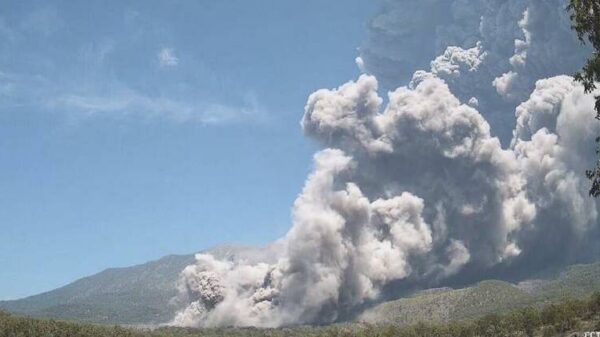Israeli air strikes and gunfire have resulted in the deaths of at least 42 people in Gaza, according to reports from Palestinian health officials and local ambulance services. This escalation comes amid a worsening humanitarian crisis, with starvation deaths increasing and ceasefire negotiations appearing to have stalled.
A significant number of casualties occurred when gunfire targeted individuals waiting for aid trucks near the Zikim crossing in northern Gaza. Staff from Shifa hospital reported that at least a dozen people were killed. The Israeli military stated that its forces fired warning shots to disperse a crowd they deemed a threat, asserting they were unaware of any casualties. Witnesses, including Sherif Abu Aisha, recounted that people began to run towards what they thought were aid trucks, only to find themselves facing Israeli tanks, which prompted the firing. Aisha lamented the dire situation, stating, “We went because there is no food … and nothing was distributed.”
In separate incidents, air strikes also resulted in the deaths of four individuals in an apartment building in Gaza City. Another strike in the crowded tent camp of Muwasi in Khan Younis claimed at least eight lives, including four children, according to reports from the Nasser hospital. Additionally, nine people were killed in Khan Younis as Israeli forces opened fire on those attempting to receive aid through the Morag corridor.
The situation is further complicated by the stagnation of ceasefire discussions between Israel and Hamas. On March 7, 2023, Israeli Prime Minister Benjamin Netanyahu indicated that his government was exploring “alternative options” to ceasefire negotiations after the U.S. and Israeli delegations were recalled. A Hamas official suggested that negotiations could resume the following week, describing the recall as a pressure tactic. Mediators from Egypt and Qatar have called the pause temporary, though they did not provide a timeline for renewed talks.
Amidst these developments, the humanitarian situation in Gaza remains dire. The United Nations and various experts have warned that Palestinians are at risk of famine. One resident, Wael Shaaban, expressed the urgency of the situation, stating, “We only want enough food to end our hunger,” as he worked to feed his family in Gaza City.
This week, Israeli authorities reported that over 250 trucks delivering aid from the UN and other organizations entered Gaza. This figure is significantly lower than the approximately 600 trucks that were entering daily during the previous ceasefire, which ended in March. International pressure is mounting on Israel to address the escalating humanitarian crisis. More than two dozen Western-aligned countries and over 100 charity and human rights groups have called for an end to the conflict, criticizing Israel’s blockade and its new aid delivery model. Since May, the UN human rights office has documented more than 1,000 Palestinian deaths attributed to Israeli forces while individuals sought food, with a majority of these incidents occurring near new aid sites operated by an American contractor.
In response to growing humanitarian needs, Israel announced that it would allow airdrops of supplies, a move requested by neighboring Jordan. However, Philippe Lazzarini, head of the United Nations agency for Palestinian refugees, cautioned on social media that airdrops are “expensive, inefficient and can even kill starving civilians.”
As the situation continues to unfold, the international community watches closely, hoping for a resolution that prioritizes the urgent needs of those affected by the ongoing conflict.
































































